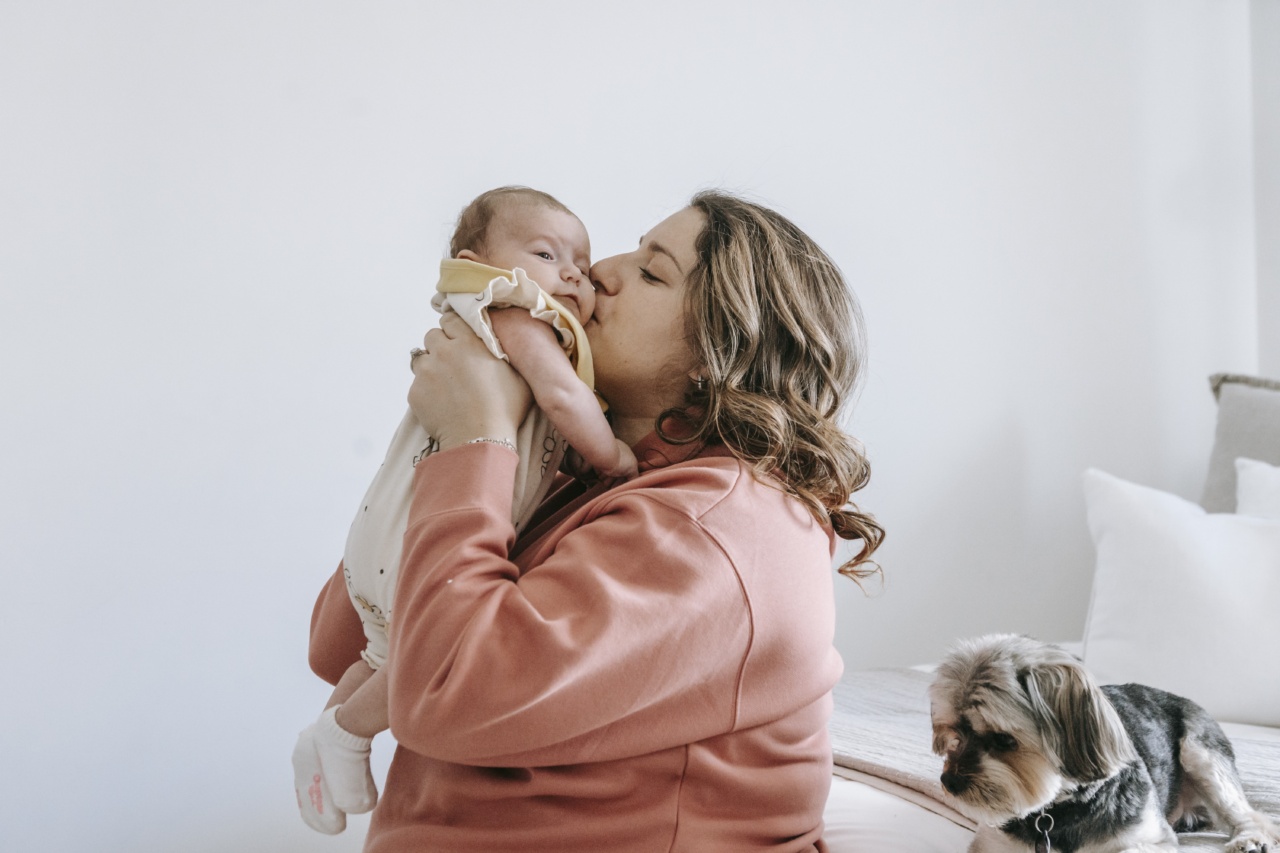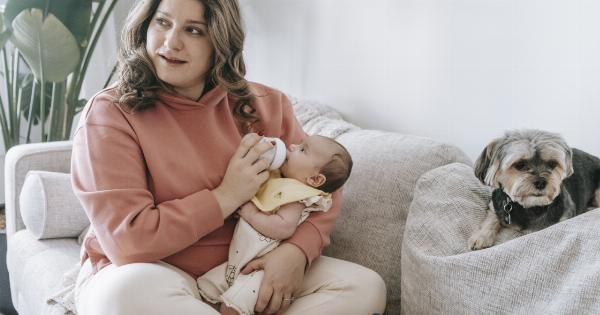Welcoming a new baby home is a joyous event for any family, but it can also be a challenging time for your furry friend – the dog. Dogs are creatures of habit and sudden changes in routine can cause stress and anxiety.
But with some planning, effort, and love, you can ensure that your dog remains happy and healthy while adjusting to the new arrival. This article will provide tips on how to keep your dog happy while raising a baby at home.
Tip #1: Establishing boundaries
Before the baby arrives, it is important to establish boundaries for your dog. Dogs have a natural curiosity and may be tempted to investigate the new arrival.
It is crucial to teach your dog what is expected of them in terms of their behavior around the baby. Some of the boundaries that you should establish include:.
- No jumping on the baby or furniture near the baby
- No barking or growling at the baby
- No sniffing or licking the baby
- No getting on the baby’s play mat or crib
Consistency is key when communicating these boundaries to your dog. Use positive reinforcement techniques such as treats, praise, and belly rubs to reinforce good behavior and redirect negative behavior.
Consider enrolling your dog in obedience training classes to help reinforce positive habits.
Tip #2: Create a safe space for your dog
Dogs need their own space to retreat to when they feel anxious or overwhelmed. It is important to create a safe space for your dog where they can go to relax and unwind.
This space should be an area where they can retreat to when they need some alone time. Consider using a crate or a designated area in your home where your dog can go to rest. Make sure that this area is comfortable and cozy with plenty of soft bedding and toys to keep your dog entertained.
Tip #3: Maintain your dog’s routine
Dogs thrive on routine and sudden changes in routine can cause stress and anxiety. It is important to maintain your dog’s routine as much as possible. This includes feeding times, exercise routine, and playtime.
Try to schedule your baby’s nap times around your dog’s routine. If you are unable to maintain your dog’s routine, consider hiring a dog walker or asking a friend or family member to help out.
Tip #4: Include your dog in family activities
Dogs are social creatures and they thrive on human interaction. It is important to include your dog in family activities as much as possible.
This includes taking your dog on walks with the baby, allowing your dog to join in on playtime, and spending quality time with your dog. This will help to reinforce positive relationships between your dog and the baby and ensure that your dog does not feel left out.
Tip #5: Watch for signs of anxiety and stress
Dogs may exhibit signs of anxiety and stress when adjusting to a new baby. These signs may include panting, pacing, trembling, excessive licking, and barking. If you notice any of these signs, it may be a sign that your dog is feeling stressed or anxious.
Take steps to reduce your dog’s stress level by increasing exercise, providing plenty of playtime, and taking breaks to give your dog some alone time.
Tip #6: Maintain good hygiene
Good hygiene is important not just for your baby but also for your dog. Make sure that your dog is cleaned and groomed regularly to ensure that there is no risk of infection or unhealthy bacteria.
Keep your dog’s bed and bedding clean to prevent any health issues. Keep your dog away from the baby’s changing area to prevent any accidental exposure to harmful bacteria.
Tip #7: Never leave your dog unsupervised with the baby
It is important to supervise your dog at all times when they are around the baby. Never leave your dog unsupervised with the baby. Even if you have trained your dog to be gentle and calm around the baby, accidents can happen.
It is better to be safe than sorry and always supervise your dog when they are around the baby.
Tip #8: Be patient and consistent
Adjusting to a new baby can be a challenging time for everyone in the household, including your dog. It is important to be patient and consistent with your dog as they adjust to the new arrival.
Remember to praise and reward positive behavior and redirect negative behavior. With time, effort, and love, your dog can adjust to the new arrival and remain a happy and healthy member of your household.
Tip #9: Seek professional help if needed
If you are struggling to manage your dog’s behavior while adjusting to a new baby, consider seeking professional help from a dog trainer or behaviorist.
They can provide guidance and support to help you manage your dog’s behavior and ensure a safe and happy household for everyone.
Conclusion
Adjusting to a new baby can be a stressful time for everyone in the household, including your furry friend. But with some planning, effort, and love, you can ensure that your dog remains happy and healthy while adjusting to the new arrival.
Establish boundaries, create a safe space for your dog, maintain your dog’s routine, include your dog in family activities, watch for signs of anxiety and stress, maintain good hygiene, never leave your dog unsupervised with the baby, be patient, and seek professional help if needed. With these tips, you can ensure a safe and happy household for everyone.





























